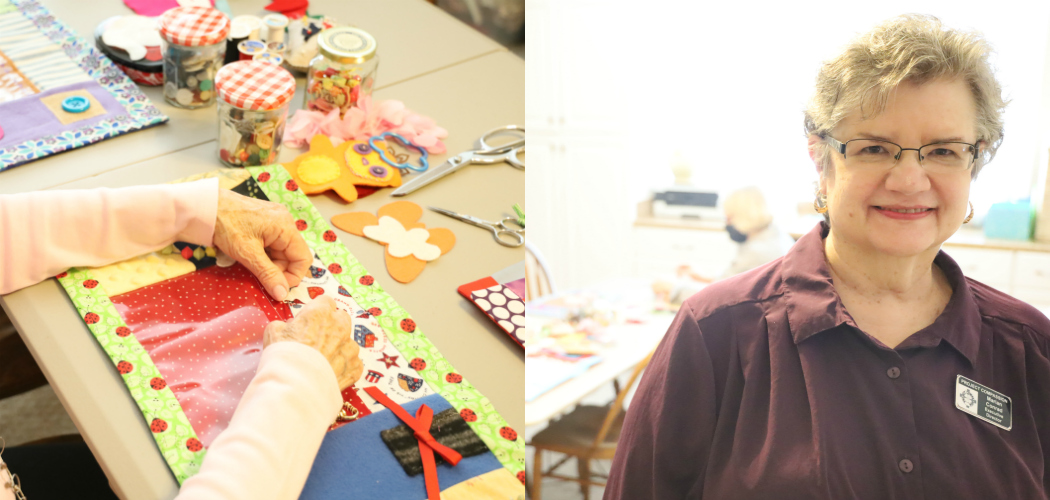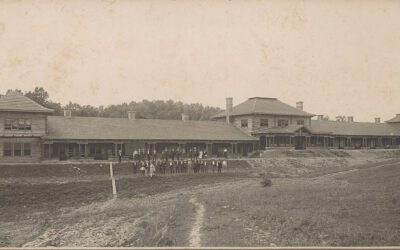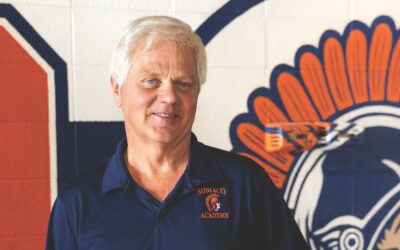[title subtitle=”WORDS and IMAGES Dwain Hebda”][/title]
The elderly woman shifts in her chair and looks out the window. The room in which she finds herself at the long-term care community where she lives is quiet and small, some days suffocatingly so. She never used to notice the walls; this time last year, she could sit in the dining room over a game of bridge or look forward to the Sunday visits of her family that included church and breakfast afterward.
But now, services are all online and truth be told, they feel more like a talk show. Her family can’t visit as frequently, partially out of her community’s safety precautions, partially out of fear for their own family’s health. Winter is coming and she feels the cold more intently now. She rests her hand on the book she’s read three times and thinks, this can’t be how the Author wrote my life’s final chapter.
Marian Conrad is a crusader for the health of the elderly. She’s not a politician seeking to improve Medicare benefits and she’s not a nurse working the ward at the local nursing home. But the executive director for Fort Smith-based Project Compassion is in a fight every bit as fierce and pervasive, preserving mental health and dignity in elders’ final years through the simple act of connection.
“There’s an emotional impact of isolation on physical health, mental health, everything,” she says. “Everything plays into that, especially during this time. The staff comes in and the people they serve see them every day with a mask on. That can be scary and kind of impersonal. The staffing at all these facilities do amazing jobs, but there’s real stress at this time for residents; stress of being restricted, of having daily activities changed and being restricted to their room, no visitors.”
Project Compassion may have been born nearly fifty years ago, but its emphasis has never been more timely: Provide seniors in nursing homes with a one-on-one lifeline to the outside world, someone to call them, visit them or otherwise connect, a specific buddy in place of absent or distant family members. It’s a mission that grew from the belief that no senior should be warehoused and alone, cut off from society; a mission made more complicated by pandemic conditions.
“Social isolation is associated with an increased risk of dementia,” Marian says. “Even those without dementia feel emotional distress, missing hugs and talking to family members and just feeling connected. Mandatory face coverings, no visitors, increased hygiene and PPE and disinfecting everything, is just a recipe for increased loneliness.
“The main thing we do is actively listen and empathize and talk about things on the outside and share.”
****
The old man picks at his tray of food, finally letting the fork drop into his mashed potatoes. He’s not hungry; wouldn’t eat it if he was. These days, there’s only room in his guts for the yawning emptiness he feels. His mind goes to her; it’s always on her.
She was the best cook in three counties, everybody said so. For their sixty years together, no matter what she put her mind to in the kitchen, it always came out perfect, even if she’d never done it before. Sometimes he’d try to stump her, ask for a dish they hadn’t shared in years and doggone if an hour later the telltale aroma told him she’d won again. He can taste her pecan pie as if it were yesterday as he gazes at the picture in his hand; it’s from their golden wedding anniversary, but all he sees is the sassy nineteen-year-old who said yes.
Patricia Fellner moved back to Fort Smith to care for her aging parents in 2002 and, needing a job, wound up the office manager for Project Compassion. Her circumstances blurred the lines between her personal responsibilities and the people the nonprofit served; in her eyes, they were all someone’s mom or dad.
“I wish I could give you statistics of how many people are in facilities that do not have any family or friends or if they do, they don’t come and visit them or call them or buy special foods that they love or get clothing for them that they need,” she says. “But I do know there are a lot of people who don’t have anyone.”
Patricia got involved in Silver Line, a Project Compassion program that creates a sort of telephone pen pal, matching a volunteer with a resident in a long-term care facility to stay in touch and help the resident maintain contact with the outside world. The service came online three years ago but is tailor-made for the COVID-19 era. Patricia experienced firsthand how literal of a lifeline this calling program is to elders.
“The woman I called, I first met her about a year ago playing dominos,” she says. “Her domino companion passed away and she was really forlorn that she didn’t have another player, so I decided that I would learn how to play dominos. I went every week on Wednesday.
“When COVID hit, she could no longer go out to meals, nor could she play dominos. Her eyesight is failing, as well as her hearing. It’s very difficult for her to watch television because she can’t really see it very well and the newscasters talk so fast, she can’t follow it. So, she feels extremely isolated and very lonely and afraid. Afraid that she’s going to catch the virus. Afraid of how she might die.
“I was calling her maybe twice a week and one time, I went a whole week and I hadn’t called her and when I did call her, she said, ‘Where have you been?!’ I was touched and then, I felt guilty, because I realized how much these phone calls mean to her.”
Patricia says it doesn’t take a lot to participate in Silver Line, just the ability to hold a conversation and the commitment to call regularly.
“I have to say, in some ways, it’s easier when you’re not related to the individual,” she says. “I always felt so responsible for my parents; if they were unhappy, I felt that in some way reflected on me, like I wasn’t doing enough for them. Whereas someone who is my friend, I’m able to let them tell me how sad they are and not take it personally. Or, even having them cry, I can cry with them. It wasn’t so easy with my own mom.”
****
Throughout the long-term care community, the signs of the season are everywhere. Even in Wing C, the memory unit, the staff has decorated doors and the nurses’ station with garland and tinsel. Holiday music floats through the overhead speakers creating a festive air.
But despite these best efforts, there are still plenty of reminders that this is home to people in the grips of a shadow that clouds the spark of memory. Caught by the cruelest of diseases, people slowly lose touch with what was once most dear to them, replaced with terrors they cannot understand. There are days compassionate caregivers enjoy residents’ rays of lucidity; other times, the drape of dementia tightens about a person like cooling rubber, making it hard to breathe, hard to think. Good moments here are fragmented, hour by hour, with the bad.
During her career as a social worker for child welfare with the State of Oklahoma, Carolyn Abbott demonstrated daily her passion for serving the most vulnerable and a steely resolve to look tragedy in the face and see hope. Little did she know that in retirement those skills would be required at the sewing table.
“Marian called me one day and said, ‘Have you ever heard of a fidget quilt?’” she says. “I said no, and I immediately went to Pinterest. There were hundreds of examples of fidget quilts on there.”
Fidget quilts are small, lap-sized patchwork quilts that, within each square, give dementia patients something to work with their hands, be it a strand of ribbon, a hidden pocket or tactile fabric. No one really knows why but holding and even merely looking at the quilts have shown to be amazingly soothing to dementia patients.
“We heard from one nursing home about a resident in their Alzheimer’s unit who screamed all day long, every day,” Carolyn says. “That would really bother staff and other residents. The activity director there placed one of our quilts in her lap and demonstrated with her fingers and her hands how to manipulate some of the things on her quilt. She quit screaming. We love that story.”
In just three years, Carolyn and her crew of six Fidgeteers have produced six hundred of the quilts distributed to the roughly two dozen care communities Project Compassion serves. The Fidgeteers round up their own material for the quilts, be it old clothes or odds-and-ends fabric, and meet regularly to compile their creations. Lately, the group has been on hiatus due to COVID-19, but Carolyn is determined to get things back up and running just as soon as can be managed safely.
“With our fidget quilts, there’s things on there that they can soothe themselves. For whatever’s going on, we hope it will provide some comfort to them,” she says. “We get requests all the time and we can’t keep up, especially since the pandemic. I think quilts are special for a lot of families. They can become heritage in families. I think that’s a real big part of this.”
Project Compassion’s biggest event each year, Hearts of Gold, collects gifts for area nursing home residents. This year, due to COVID-19, items can be dropped off at one of several drive-thru locations. Items being collected include new sweatshirts and sweatpants, nightgowns and pajama sets, throws, blankets and non-slip socks in sizes medium to 5X. Monetary donations are also accepted. For a list of drop-off spots, see Project Compassion’s website and plan to donate by Dec. 16.
Project Compassion
The Center at Trinity Junior High
1205 Albert Pike Avenue, Fort Smith, Arkansas
479.783.2273
projectcompassioninc.com




